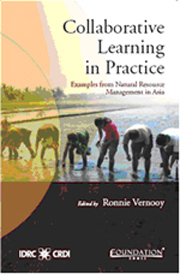Book contents
- Frontmatter
- Contents
- Foreword
- Acknowledgements
- Preface
- Chapter 1 Toward Centres of Excellence for CBNRM (Community-Based Natural Resource Management)
- Chapter 2 Participatory Research and Development in South Asia
- Chapter 3 Adaptive Learning: From Isang Bagsak to the ALL in CBNRM Programme
- Chapter 4 Mainstreaming CBNRM in Chinese Higher Education
- Chapter 5 Comparing the Case Studies
- References
- Notes on Contributors
- Index
Chapter 4 - Mainstreaming CBNRM in Chinese Higher Education
Published online by Cambridge University Press: 26 October 2011
- Frontmatter
- Contents
- Foreword
- Acknowledgements
- Preface
- Chapter 1 Toward Centres of Excellence for CBNRM (Community-Based Natural Resource Management)
- Chapter 2 Participatory Research and Development in South Asia
- Chapter 3 Adaptive Learning: From Isang Bagsak to the ALL in CBNRM Programme
- Chapter 4 Mainstreaming CBNRM in Chinese Higher Education
- Chapter 5 Comparing the Case Studies
- References
- Notes on Contributors
- Index
Summary
This case study focuses on participatory action learning in the country's higher education system. In Part 1, the background and the main elements of the capacity development initiative are described and, in Part 2, a summary of the learning outcomes at various levels is given and some reflections on the achievements till date are included. It draws on theory, on personal and active experience in the initiative, and on the findings of multiple participatory monitoring and evaluation (PM & E) activities carried out throughout the capacity development process. As part of the learning experimentation personal learning stories are included in this case study. These stories aim to give some insight in the everyday learning process that was experienced, among others, about the enrolment in the initiative, the linkages established, and the emergent features that have come about in the innovation process.
Part 1: The capacity development initiative
Challenges in China's higher education
The field visit experience described above is the key part of a new course at the College of Humanities and Development (COHD) at China Agricultural University (CAU) in Beijing: “Community-based natural resource management – an introduction.” The course development experience – from design, through delivery, to evaluation – is part of a larger action research and capacity development initiative entitled “Participatory learning, curriculum development and mainstreaming of community-based natural resource management approaches in higher education in China” (COHD 2004). This initiative aims to contribute to the development and implementation of innovative, community-based and participatory development approaches in rural China.
- Type
- Chapter
- Information
- Collaborative Learning in PracticeExamples from Natural Resource Management in Asia, pp. 95 - 150Publisher: Foundation BooksPrint publication year: 2009



